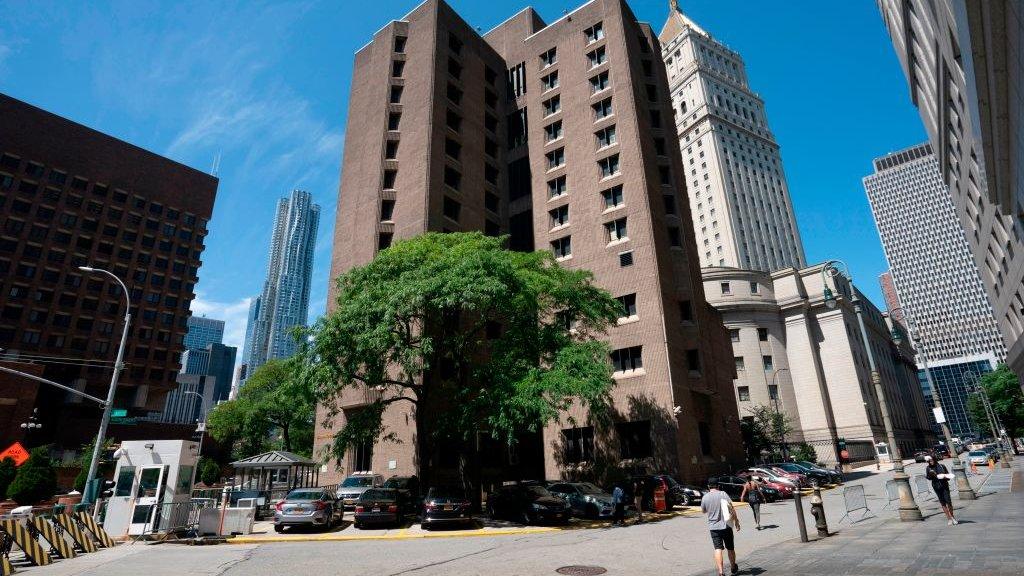'Chaos reigns' - the notorious jail holding Sean 'Diddy' Combs
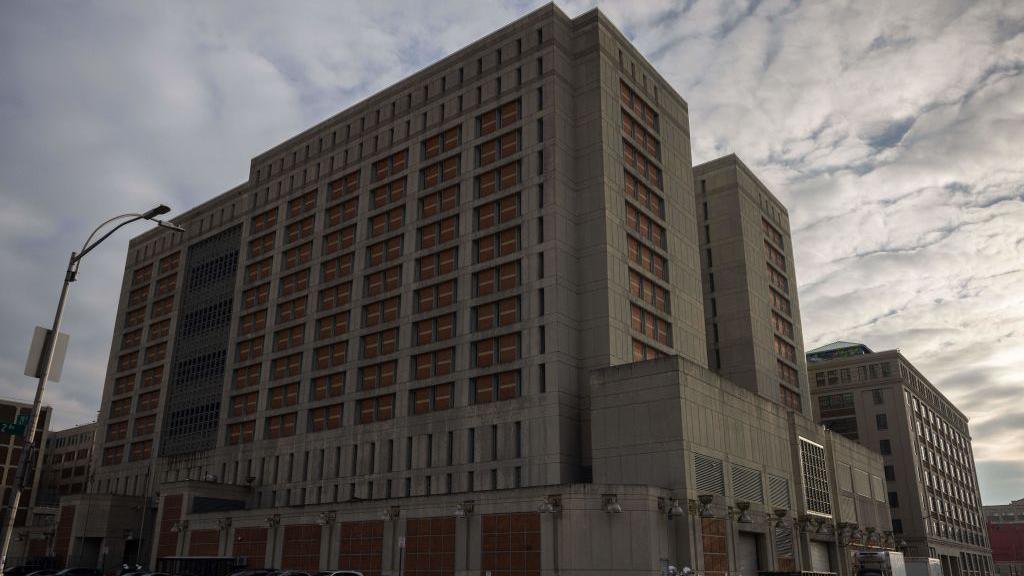
Metropolitan Detention Center in 2021
- Published
Ordinarily, US District Judge Gary J Brown would have sent the man to the local federal jail to serve out his sentence for tax fraud.
But one thing stopped him: “The dangerous, barbaric conditions that have existed for some time at the Metropolitan Detention Center in Brooklyn.”
The notorious jail, commonly known as MDC, is in the spotlight once again due to its latest celebrity detainee. Last week, a New York judge ordered Sean “Diddy” Combs be held there after federal prosecutors charged him with sex trafficking, racketeering, and transportation to engage in prostitution. He has pleaded not guilty.
High-profile defendants like Mr Combs sometimes receive special protection when jailed, and the music mogul is reported to be in a section of MDC Brooklyn for detainees who require special protection.
Mr Combs is, according to local media reports, sharing a dormitory-style room there with the cryptocurrency entrepreneur Sam Bankman-Fried, who once ran a company worth billions but was convicted on multiple counts of fraud in March.
And because it is the only federal jail in New York City, where many high-profile cases are processed, the pair are just the latest in an extensive list of notable names to have passed through the facility's doors. That list includes the rapper R Kelly as well as Jeffrey Epstein associate Ghislaine Maxwell.
But for many of MDC Brooklyn's 1,200 current inmates, it’s a different story.
In an August sentencing decision, Judge Brown cited multiple cases of fellow jurists who had hesitated to send defendants and convicts to the jail due to the conditions.
“Allegations of inadequate supervision, unbridled assaults, and lack of sufficient medical care are supported by an increasing body of evidence, with certain instances that are irrefutable,” he said.
“Chaos reigns, along with uncontrolled violence,” Judge Brown added. His ruling included the case of a defendant who was stabbed multiple times but reported receiving no medical care, instead being locked in his cell for 25 days. The judge cited staffing shortages and worsening conditions after the Covid pandemic that forced the jail into lockdown.
If the Bureau of Prisons decided to send the defendant in the tax fraud case to MDC, the judge wrote, he would vacate the man's sentence.
US attorney lays out charges against Sean 'Diddy' Combs, as lawyer says he's 'innocent'
A troubled history
MDC Brooklyn was opened in the 1990s, and its issues stretch back years.
In 2019, an electrical fire in the dead of winter caused a blackout, plunging the facility into darkness and frigid conditions.
And in June 2020, an inmate, Jamel Floyd, died after being pepper sprayed by correctional officers. His family sued the federal government over his death. A review by the Department of Justice concluded there was "insufficient evidence" that prison authorities "engaged in administrative misconduct," but did acknowledge that the use of pepper spray violated policy.
Judge Brown is not the only judge to harshly criticise the facility.
In January, Judge Jesse Furman of the Federal District Court in Manhattan refused to send a man who pleaded guilty in a drug case there because of its dangerous conditions.
After initially allowing the man, Gustavo Chavez, to await sentencing on supervised release, Judge Furman ultimately let him bypass MDC and report directly to the prison where he would serve out his sentence.
In July, 36-year-old Edwin Cordero died after he was injured in a fight while serving out a sentence at MDC.
“The decrepit conditions are really fuelled by this sort of terrible conflation of circumstances,” Andrew Dalack, the lawyer for both Mr Cordero and Mr Chavez, told the BBC. “Overcrowding, understaffing and a lack of a political will to fix the conditions.”
As a Brooklyn-based public defender, Mr Dalack has represented numerous clients who have been sent to MDC. “It’s a really scary place to be,” he said.
After Mr Cordero’s death, US Congressman Dan Goldman, who represents the district where the Brooklyn facility is located, called for more federal oversight to address “chronic understaffing, perpetual solitary confinement and widespread violence".
The Federal Bureau of Prisons, which manages the facility, said in a statement that it "takes seriously our duty to protect the individuals entrusted in our custody, as well as maintain the safety of correctional employees and the community".
A spokesman for the bureau pointed to the creation of an urgent action team, which is seeking to address issues at MDC, and an ongoing effort to hire more staff and address a backlog of maintenance requests.
The BBC's Nada Tawfik lays out key details of the case against Combs
A February 2024 report compiled by the Federal Defenders of New York, where Mr Dalack works, attributed overcrowding issues to the closure of its troubled sister facility in Manhattan, which the government shut down in 2021 - two years after Jeffrey Epstein's in-custody death at the facility.
They also said the presence of drugs and other contraband contributes to the facility's dangerous atmosphere.
The federal facility holds individuals who have been convicted of crimes, but a substantial portion of the population there is awaiting trial in the city’s federal courts, and have yet to be found innocent or guilty.
The conditions weighed on Mr Dalack’s clients, who were already facing the prospect of more permanent incarceration.
“It should not be the case that while your life is on the line and your liberty is on the line, that you have to be completely stripped of your humanity,” he said. “MDC Brooklyn has a way of really breaking people down, and making them feel less than human.”
Related topics
- Published25 August 2023
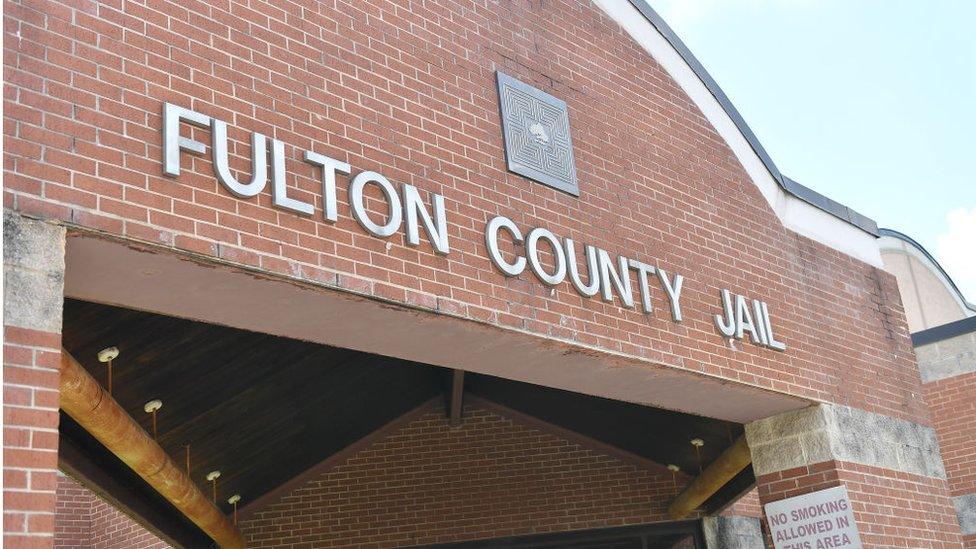
- Published7 April
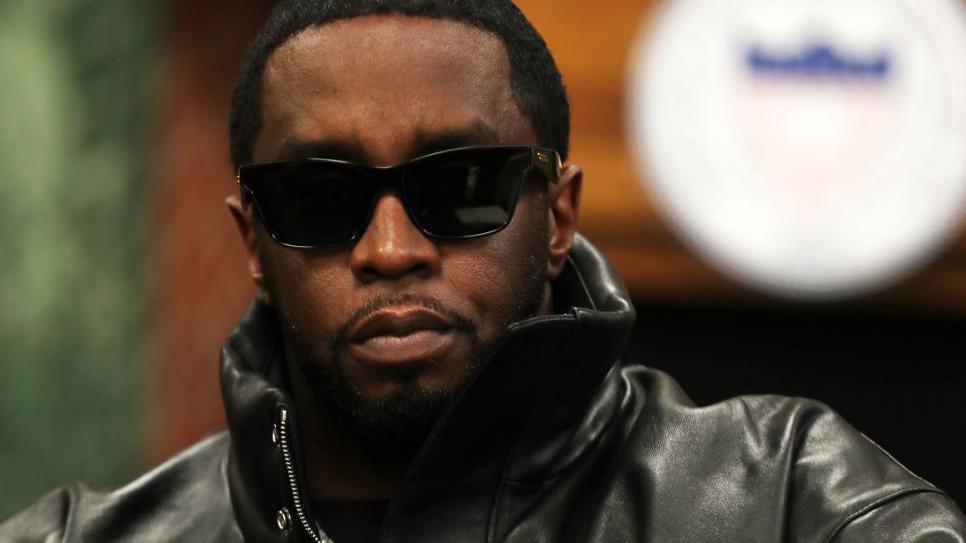
- Published15 April
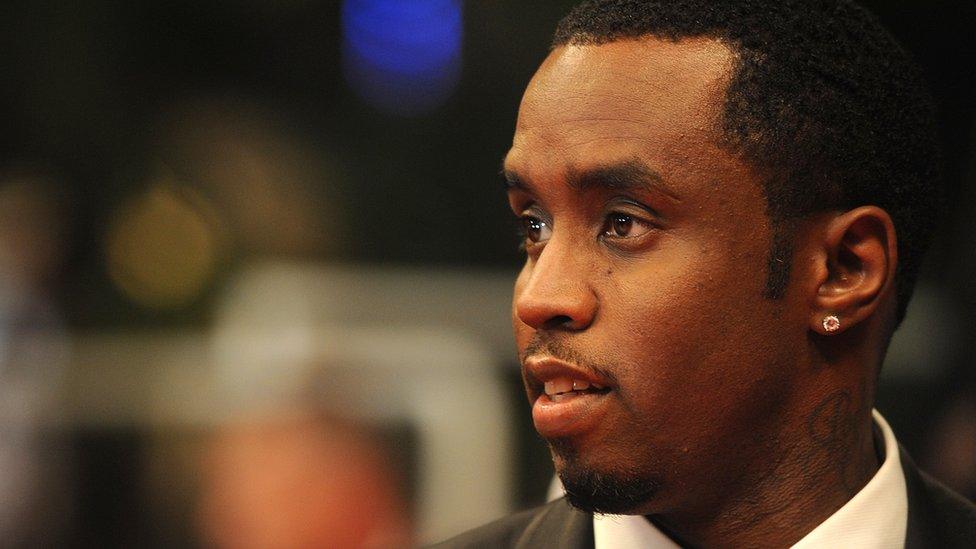
- Published12 August 2019
